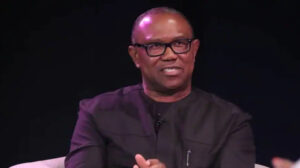Former Labour Party presidential hopeful, Mr. Peter Obi, has voiced his dissatisfaction with President Bola Tinubu’s recent address to the nation regarding the ongoing protests sweeping across the country.
Obi remarked that the President’s speech seemed out of touch with the pressing realities faced by the populace and neglected to tackle the fundamental issues that sparked the protests in the first place.
He suggested that the address either indicates a disconnect among the President’s advisers concerning the widespread anger, hunger, and hardship in Nigeria or a conscious decision to overlook these significant challenges.
In a post on his X account on Monday, the former Governor of Anambra State urged the President to distance himself from flattery and instead surround himself with honest advisors who can provide unfiltered insights.
In a statement titled “My Response to the President’s Address,” Obi expressed his thoughts: “Having previously called for the President to address the nation and respond to the citizens’ demands, I took time to reflect on the speech before sharing my views. I wanted to ensure my interpretation aligned with the sentiments of others, particularly since I faced accusations of instigating the protests.”
“First, I must acknowledge the President for finally addressing the people, albeit later than ideal, which could have potentially averted unnecessary casualties, including those within our security forces.”
“While it was my hope that he would extend condolences to families affected by the protests, including those injured and detained due to the excessive actions of some security personnel, this empathy was regrettably absent. It is the government’s duty to identify those who resort to criminal behavior amid protests and to protect the rights of individuals exercising their democratic freedoms.”
“Nigeria must uphold democratic principles, including the right to peaceful protest, without selective enforcement. I also commend his condemnation of ethnic intolerance promoted by certain factions against other groups.”
“Nevertheless, I anticipated more decisive actions, such as the prompt arrest and prosecution of those responsible for instigating violence, to illustrate that such behavior will not be tolerated in contemporary Nigeria.”
“Sadly, the President’s address seemed detached from the grim realities citizens are grappling with and overlooked the pivotal issues that ignited the protests.”

“This either reflects a lack of awareness among his advisers regarding the depth of discontent, hunger, and hardship prevalent in the country, or a conscious choice to ignore it. I strongly recommend that the President surround himself with those who will convey the unvarnished truth.”
“While the President’s remarks focused on historical context, the citizens are primarily concerned with today’s issues and future prospects. He should prioritize urgent matters such as the excessive costs associated with governance, initiatives to combat corruption,
The rising cost of living, and the strategic allocation of resources towards essential sectors like healthcare, education, and poverty alleviation. I respectfully urge the President to declare a war on insecurity, economic stagnation, poverty, unemployment, and the power crisis.”
“Corruption and mismanagement of public funds must be tackled head-on. Just as other nations do during crises, it is vital for the President to conduct regular briefings—be it quarterly or biannually—to clearly communicate the tangible measures being taken to revive the nation from its current despair, restore hope, and rebuild trust among citizens.”
“I also humbly request that the President refrain from overemphasizing the dire situation; every Nigerian is acutely aware of the challenges at hand. Mr. President, you and your administration were elected not merely to observe protests but to alleviate the hardships faced by the populace.”
“Nigerians do not expect the President to resolve the nation’s issues overnight, but they do seek a genuine commitment to addressing the mismanagement of public resources, lowering the cost of governance, and tackling crucial issues such as insecurity, corruption, electricity, agriculture, and productivity to steer the country towards recovery and growth. By taking these steps, the President can restore faith and instill hope in the hearts of Nigerians, proving that a better Nigeria is indeed possible.”



